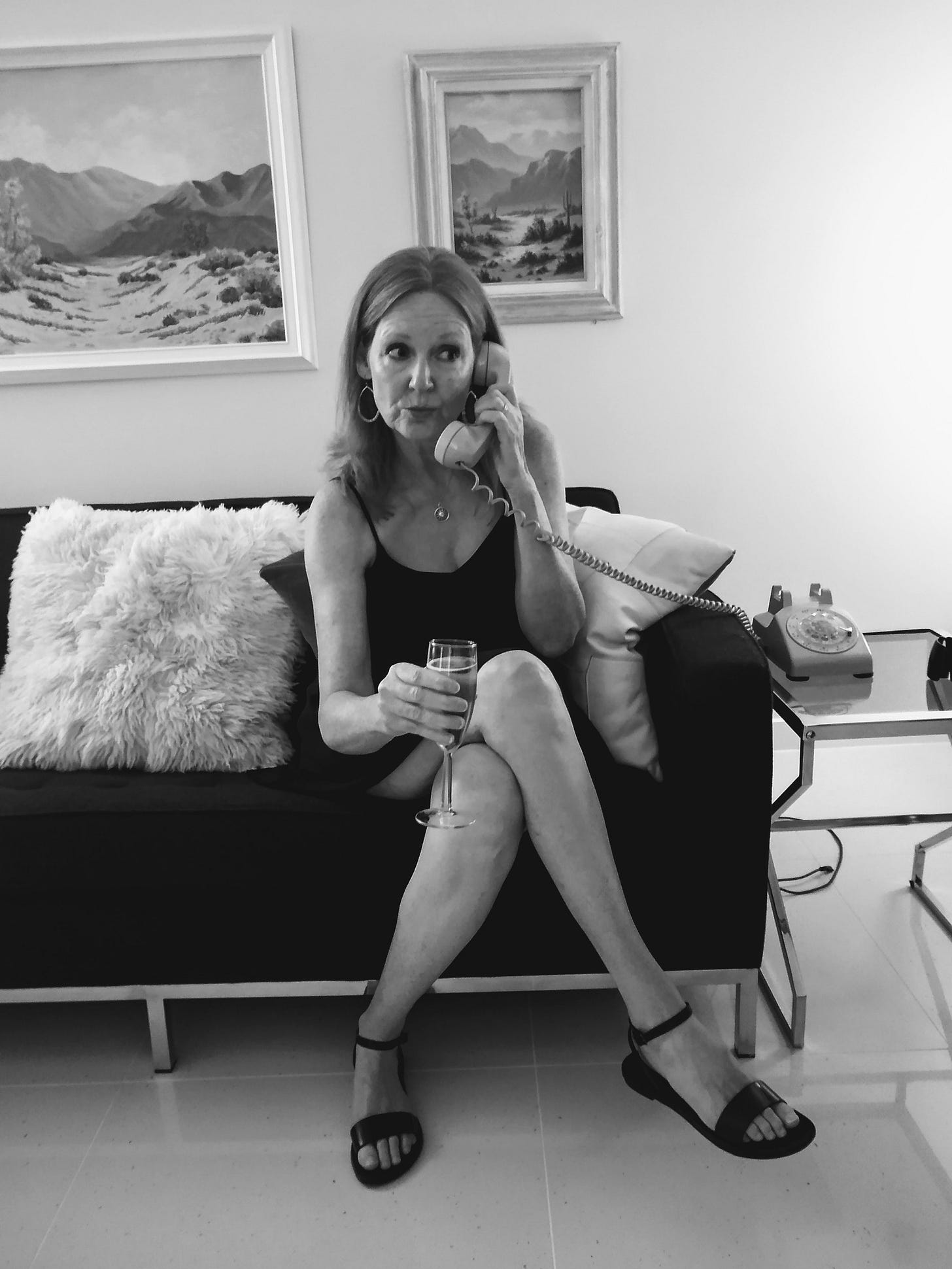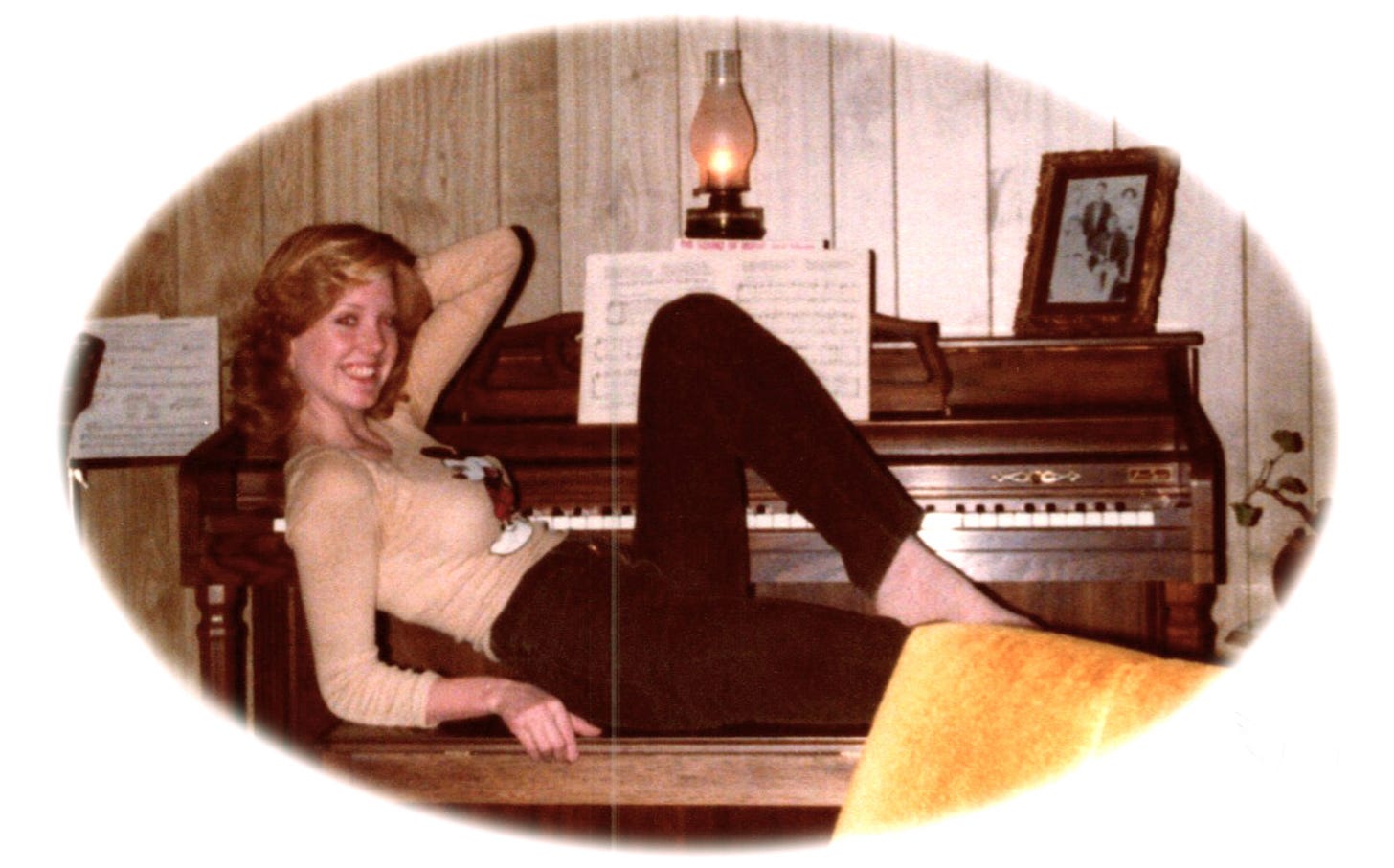TODAY'S RAMBLINGS
4 Minute Read
Not very long ago, my wife and I celebrated our 34th wedding anniversary. Indeed, we spent the day on SF’s Treasure Island, and it was such a fine day, I wrote about it.
Over the years, many have asked (fact check: none have asked): Portico, what is the secret to marriage longevity?
Well, not having children unless you’re certain you both want them, but that’s a post for another time. Today’s subject is compatibility.
Clearly, we’re good there, although there is one area where we’ve had conflict over the years. As hard as it is to imagine, my ego is quite large, and I do not particularly enjoy being doubted or questioned. Kidding, but not really, and that can cause trouble, like in the following example.
Picture us staying at an Airbnb or in a home with which we’re not familiar, and before going to bed:
I lock the front door
I tell Julie I locked the front door
I see Julie double-checking that the front door is locked
I yell at Julie
Simple right?
Well, over the years, I came to appreciate this double layer of security and knowing a door won’t be left unlocked, a light left on, or a window left open: Julie’s on the job.
And do you know what? It turns out the trait that makes Julie double-check that a door is locked also makes her very good at what she does for a living, and is a positive (and negative) in other ways, too. We learned this from a fun article Julie found on the topic, excerpts of which follow.
For the record: Yes, Julie encouraged this post, and no, I’m not just regurgitating click-bait-y stuff from the Internet’s goofy recesses.
Because the article describes my beloved wife perfectly, and it might do the same for your own spouse.
This small moment of caution can say a lot about who we are and how we move through life. There’s nothing wrong with double-checking.
But if you’ve ever wondered why you do it or what it might reveal about your personality, read on. Let’s explore eight traits that often show up in people who make that extra trip to the door (even when they know it’s locked).
1. You value safety above everything
You crave security—physical, emotional, and psychological. Part of this comes from a desire to eliminate any possibility of harm. Your mind prefers certainty over chance.
With door locks, your mind quietly insists, “Better safe than sorry.” You might see it as the smallest investment of time to prevent a major headache down the road.
And truthfully, that sense of security is a small gift you give yourself.
2. You’re detail-oriented by nature
A friend once told me, “You never overlook a thing,” and it was one of the biggest compliments I’ve received. If you’re someone who double-checks the door lock, you likely notice tiny details that others brush past.
In fact, you might find that:
You remember specific times you locked the door, but still verify it.
You often catch spelling mistakes or overlooked aspects at work.
You’re the person who points out minor inconsistencies in plans or schedules.
That level of detail-oriented thinking can make you an excellent planner.
But it can also feed into overthinking if you’re not careful.
3. You embrace personal responsibility
Double-checking the door lock, at its core, can be a sign of taking personal responsibility. You’d rather own the situation and make sure it’s handled.
Mark Manson, author of self-improvement books, often emphasizes the power of personal accountability. He’s noted that we experience a deeper sense of control when we assume responsibility for our actions.
You could be the one who steps up for volunteer work, takes initiative at your job, or proactively solves family conflicts.
4. You have a hint of perfectionism
I’ve struggled with perfectionism in my own life, especially in how I keep my workspace tidy. Double-checking the door can be one subtle expression of that pursuit of perfection.
If something’s out of place or incomplete, you feel a little wave of stress until it’s fixed.
Perfectionists often recheck because they want to ensure zero error - it’s that drive for flawless execution.
Brené Brown once said, “Perfectionism is not the same thing as striving to be your best.” Her work reminds us that while aiming high can be positive, perfectionism has a sneaky way of creating unnecessary tension.
5. You practice mindfulness (even if you don’t realize it)
Double-checking might sound like the opposite of mindfulness, but there’s a different angle to consider. The act of verifying can actually be a moment of awareness—one where you stop, pause, and ground yourself.
“Did I lock the door?”
One of the key principles of mindfulness is simply noticing your surroundings and mental processes. You recognize the subtle anxiety that arises, and you respond by checking the lock. Rather than ignoring that feeling, you address it.
Integrating small acts like this into one’s day can remind you to pay attention to what you’re doing, instead of letting autopilot run the show.
6. You’re highly empathetic to others’ fears
If you find yourself double-checking locks, you might also be the person who assures family and friends, “Don’t worry, I locked the door.” You sense how others might worry. You want to ease that concern before it even has a chance to surface.
Empathy is about understanding someone else’s emotional state. By verifying the lock, you’re preventing anxiety for yourself and those around you.
There’s a caring element to that, and people who are naturally empathetic also tend to offer more reassurance in everyday life.
7. You hold lingering worries but want to manage them
Sometimes, checking the lock is about quieting a tiny voice that says, “What if you’re wrong?” That voice can pop up in different areas of life: finances, job decisions, or personal relationships.
You’re not paralyzed by these worries, but you do prefer to keep them in check.
Instead of telling myself, “Stop being silly,” I’ll do a quick verification and then move on.
It’s a balanced approach: acknowledging the worry without letting it spiral.
8. You believe in practical rituals for peace of mind
Rituals can be powerful. They give structure, comfort, and predictability to our lives.
Double-checking is a mini-ritual: a consistent action that signals “all is well” to your brain. Routines and rituals can strengthen our sense of stability in the home.
That stability can be emotional, too.
By developing little practices—like verifying the lock or tidying up a certain way—you nurture a sense of control over your environment. These small habits create a steady rhythm.
Double-checking the lock may feel similar: You’re reaffirming that your space is secure and inviting calm into your evening.
Can rituals like these signal insecurity or obsession? Yes, but in reality, it’s only problematic if it causes you distress or disrupts your life.
If you’re at peace with verifying the lock, then it’s simply one more self-soothing technique you use to navigate the world.
Plus, Julie cooks great New Mexican food and is a lot of fun at parties.
FROM THE UNWASHED MASSES
Thank you for reading this newsletter.
KLUF
Speaking of my wife, let’s go with a playlist she’s certain to love. As will anyone that wants their 57 best songs, sans the balladry dreck from their later albums.







